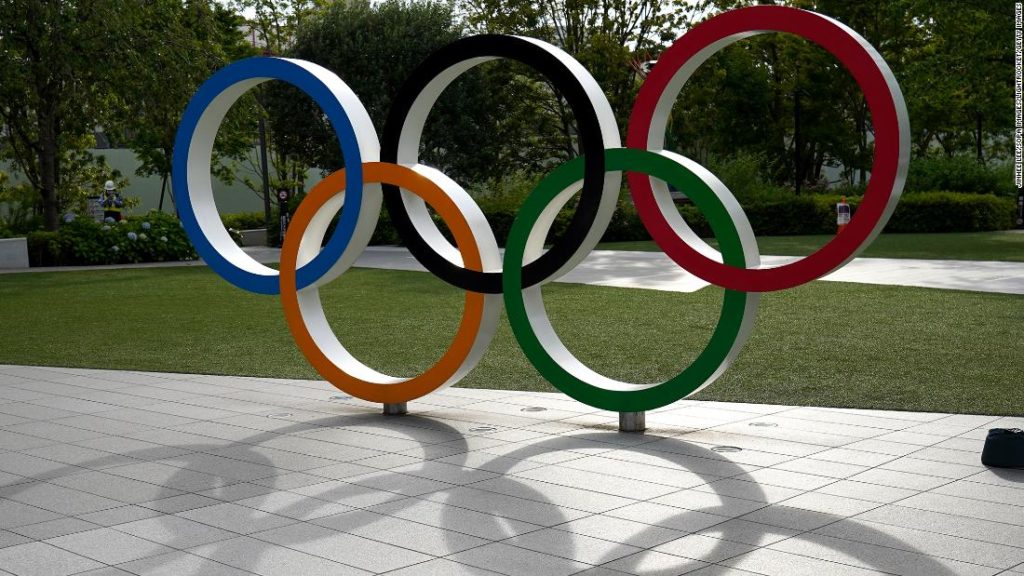
Thursday was the 50-day marker until the start of the Summer Olympics in Tokyo — an Olympics that, if they do get underway as expected, will be like no other. Typically, the Olympics are covered by news orgs as a sporting affair first and foremost. Sports commentators and journalists fan out across the host city to cover the competitions. And there will be lots of that coverage when the games commence on July 23. But the bigger and more important story is the one related to public health.
But Japan has vowed to press ahead. And so, in just a matter of weeks, tens of thousands of athletes, coaches, staff, and members of the press will descend on Tokyo for the games. This raises a multitude of questions, including whether the 2021 Olympics could be remembered as a super-spreader event…
I spoke by phone on Thursday with Dr. Arthur Caplan, professor of medical ethics at NYU Grossman School of Medicine. Caplan expressed significant worry that the press, thus far, has not done a sufficient job spotlighting the public health questions lingering over the games. He acknowledged that there has been some coverage about whether the games will be canceled or postponed, but it hasn’t been rigorous enough or touched on other public health aspects.
One of Caplan’s main worries is that in the US, life is getting back to normal and people are getting tired of hearing about Covid, all of which could skew news coverage. “For me there is a big challenge for media,” he said. “There are tendencies to want to portray things as back to normal … but most of the world is not in that situation.”
“All the big news outlets have an obligation to pay as much attention to the public health side as the sports side,” Caplan added. “I think it would be important not to ignore the fact that many throughout the world are in the middle of public health outbreaks while they send delegations to play water polo or field hockey.”
Dr. Reiner’s questions
Dr. Jonathan Reiner, a CNN medical analyst and professor of medicine and surgery at GWU, stressed that “journalists should be asking about the vaccination program in Japan,” among other things.
Some of Reiner’s Qs: “Japan wishes to conduct an enormous international event involving many thousands of people yet the country has only fully vaccinated 3% of its population. Is it fair to consume so many resources now for a sporting event? Would the money and physical resources be better spent on getting more Japanese vaccinated? Are the Olympic organizers mandating vaccines for all the athletes? What are the ethics surrounding that when so many competitors are coming from countries without robust vaccination programs? Why bring so many people together in Japan just as they are recovering from a big surge?”
Vaccination requirements?
Reiner wanted to know whether the athletes will be required to be vaccinated, but the games are so much larger than just the competitors. Arguably more important: Will the thousands of support staff and members of the international press be required to show proof of vaccination to be in Tokyo to cover the games? It seems like a simple question, but I couldn’t get an answer when I reached out to the International Olympics Committee on Thursday.
NBC focused on “presenting the Tokyo Games”
I’ve been checking in with NBC to see how the network is planning for the games, given the challenges and calls for the games to be canceled. Does the network have any contingency plans in the unlikely event the games are scrapped? A spox told me last week that the network’s focus “remains on presenting the Tokyo Games to the American public on our platforms starting on July 23…”
You may also like
-
Afghanistan: Civilian casualties hit record high amid US withdrawal, UN says
-
How Taiwan is trying to defend against a cyber ‘World War III’
-
Pandemic travel news this week: Quarantine escapes and airplane disguises
-
Why would anyone trust Brexit Britain again?
-
Black fungus: A second crisis is killing survivors of India’s worst Covid wave

